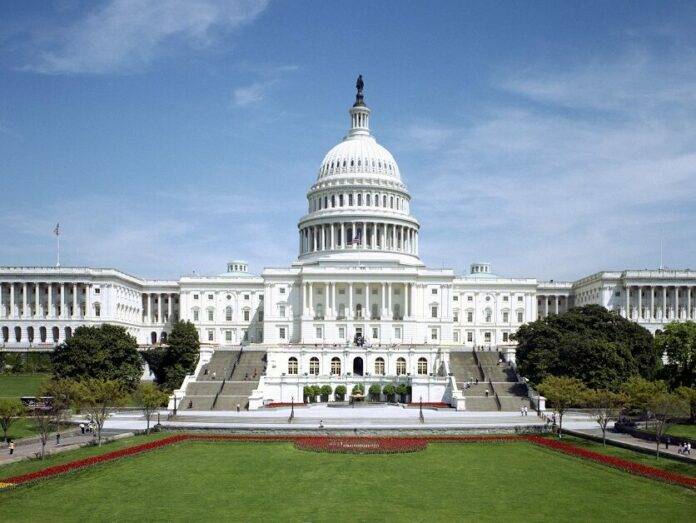House Republicans Seek Consensus on Budget Plans Amid Senate’s Alternative Approach
As the political landscape shifts in Washington, House Republicans are striving to unify around a comprehensive plan to implement President Donald Trump’s tax and spending agenda. This week, the focus is on establishing a fiscal 2025 budget resolution, which serves as a foundational blueprint for future budget reconciliation efforts. In contrast, Senate Republicans are opting for a more conservative Plan B, prioritizing a smaller budget that defers the more expensive and controversial elements for subsequent discussions.
Controversial Nominations in the Senate
In the midst of budget negotiations, the Senate is poised to deliberate on five more nominations, including Robert F. Kennedy Jr. for the position of Secretary of Health and Human Services and Brooke Rollins for Secretary of Agriculture. Kennedy’s nomination has emerged as particularly contentious, largely due to his longstanding skepticism regarding vaccines. However, he has recently cleared a significant hurdle, receiving approval from the Senate Finance Committee in a party-line vote.
Senator Roger Marshall, a Republican from Kansas and a vocal supporter of Kennedy despite Kennedy’s critical stance on conventional agriculture, expressed optimism about the nomination’s prospects. "I think there’s an army of people out there that are jamming senators’ boxes, their emails, and their phones saying support Bobby Kennedy Jr. I believe this will be a situation where the American people carry his nomination," Marshall stated.
Progress Toward a Budget Framework
The primary question looming over Washington this week is whether House Republicans can converge on a unified framework for a large-scale tax and spending package. House Speaker Mike Johnson conveyed to Fox News that Republicans are "very, very close" to finalizing a budget plan, although he hinted at potential delays in the House Budget Committee’s actions. Johnson emphasized that the one-bill strategy the House GOP is pursuing would maximize the chances of fulfilling their campaign promises.
Conversely, Senate Republicans are maintaining a more cautious, two-step approach. The Senate Budget Committee has scheduled two days of meetings to examine its FY25 budget resolution, which will focus on enhancing funding for border security and military initiatives, with tax cuts to be addressed later.
Trump has been vocal in urging lawmakers to accelerate the legislative process, pressing the GOP to extend beyond merely renewing the expiring provisions of the Tax Cuts and Jobs Act of 2017. In a recent meeting with House Republicans, he reiterated his commitment to eliminating taxes on tips, Social Security, and overtime pay. "We must secure our border, unleash American energy, and renew the Trump tax cuts, which were the largest in history, but we will make it even better. NO TAX ON TIPS. It will all be made up with tariffs and much more from countries that have taken advantage of the U.S. for years," Trump asserted in a social media post.
Senate Budget Proposal and Its Implications
The Senate GOP’s budget resolution proposes an annual spending increase of $85.5 billion over four years. Senator Lindsey Graham remarked, "To those who voted for and support real border security and a stronger defense in a troubled world, help is on the way." He indicated that this budget resolution would facilitate the necessary funding for Trump’s team to enhance border security and deport criminals.
However, the proposed spending increases are not without controversy. The budget resolution instructs committees to identify $5 billion in cuts over ten years, even as it simultaneously directs an increase in spending totaling $345 billion. Notably, the Agriculture Committees in both chambers will be tasked with identifying policy changes aimed at achieving $1 billion in spending reductions over the same timeframe.
Representative Chip Roy, a Texas Republican and member of the House Freedom Caucus, noted that while negotiations are progressing, key questions remain unresolved. "It’s a mix of whether the cuts are sufficient, what the total tax impact is, and what the growth assumptions are," he stated.
The House Freedom Caucus and SNAP Reform
The Supplemental Nutrition Assistance Program (SNAP) is under scrutiny in the House, with potential changes to workforce requirements being considered. However, there is currently no consensus among House Freedom Caucus members regarding the specific alterations to be implemented.
Democrats’ Stance on Government Funding
As discussions on the budget continue, congressional appropriators face the looming March 14 deadline to prevent a government shutdown. Since the start of fiscal 2025 on October 1, the government has been operating under continuing resolutions at FY24 funding levels. Democrats have expressed dissatisfaction with the proposed spending cuts and the restructuring of federal agencies, leading them to withhold support that Republicans may need to avert a shutdown.
Senator Cory Booker, a New Jersey Democrat, emphasized the party’s commitment to opposing Trump’s policies, stating, "The strategy is to do whatever we can to stop Donald Trump from hurting Americans, from making us less safe, less secure, and from raising our costs." Similarly, Senator Andy Kim warned that Republicans should not rely on Democratic support for new funding bills, indicating a willingness to use leverage to hold the GOP accountable.
The Road Ahead
In light of these developments, House Appropriations Committee Chairman Tom Cole acknowledged the growing interest in pursuing another continuing resolution rather than attempting to finalize FY25 funding legislation. He remarked, "Every day that goes by, the pressure to just throw in the cards and quit mounts."
As the House and Senate Agriculture Committees convene to discuss the farm economy and the challenges faced by row crop producers, it remains to be seen how these budget negotiations will unfold. Upcoming hearings will delve into the economic uncertainties affecting the agricultural sector, providing a platform for farmers and stakeholders to voice their concerns.
In summary, the convergence of budget negotiations, controversial nominations, and looming deadlines underscores a period of significant political maneuvering in Washington. As both parties grapple with these challenges, the outcome will have lasting implications for the administration’s fiscal policies and the broader economic landscape.




